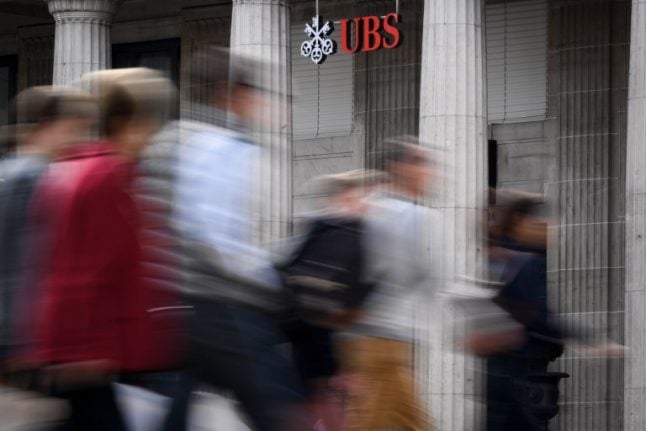Grübel had engineered Credit Suisse’s own recovery in the early 2000s, after the bank took massive charges arising from the Enron scandal. Within a year, the bank returned to profitability.
Likewise at UBS, Grübel managed to restore the bank’s profitability around 18 months after he took over the helm.
However, Grübel has now been forced to resign after UBS was hit with an internal crisis on his watch — the discovery of unauthorised trades allegedly made by trader Kweku Adoboli which lost the bank $2.3 billion.
Born November 13th 1943 in eastern Germany, Grübel entered the banking industry as an apprentice at Deutsche Bank.
He later joined White Weld Securities, a subsidiary of Schweizerische Kreditanstalt, the former name of Credit Suisse, and became a member of the Credit Suisse executive board in 1991.
Grübel retired at the end of 2001 but was brought back just six months later as the head of Credit Suisse financial services.
Swiftly, he was asked to take over as joint CEO in September 2002 during Credit Suisse’s darkest hour.
It was his reputation at the rival bank that led UBS to rouse Grübel out of his retirement for the second time.
In the statement announcing that he was to take over from Marcel Rohner, the bank said: “With his previous employer Credit Suisse, Mr Grübel was the architect of a successful turnaround and restored confidence in the company in turbulent times.”
Within minutes of taking the reins, the straight talking banker told his staff that massive cost cuts were imminent.
Since 2009, the bank has slashed thousands of jobs, cutting the bank that was getting too large to govern to size.
Investors heaved a sigh of relief when the bank not only became profitable again in the third quarter of 2010, but also stemmed an outflow of client assets for the first time since the financial crisis.
Mindful of the public resentment against bankers with fat pay checks, Grübel, nicknamed “Ossie”, voluntarily renounced his bonuses for 2009 and 2010.
While he may have won the respect of investors and employees, the German recently ruffled some feathers when he criticised the Swiss National Bank for its move to put a cap on the franc’s rate against the euro.
The trading scandal at UBS has also made some question his leadership style.
UBS’ honorary chairman Nikolaus Senn criticised Grübel for his over-reliance on the controls system to uncover problems, instead of going to get a proactive grip on the situation.
“I don’t know how many times Oswald Grübel flew to London in order to understand from the managers on site what was going on,” Senn told Swiss German television.
The Financial Times meanwhile quoted an unnamed trader saying that the problem was that “no one questions Ossie.”
UBS said on Saturday its board “regrets” Grübel’s decision to quit but Chairman Kaspar Villiger said he “feels that it is his duty to assume responsibility for the recent unauthorised trading incident.”
Villiger praised Grübel for “his uncompromising principles and integrity”, and acknowledged that during his tenure “he achieved an impressive turnaround and strengthened UBS fundamentally.”


 Please whitelist us to continue reading.
Please whitelist us to continue reading.
Member comments